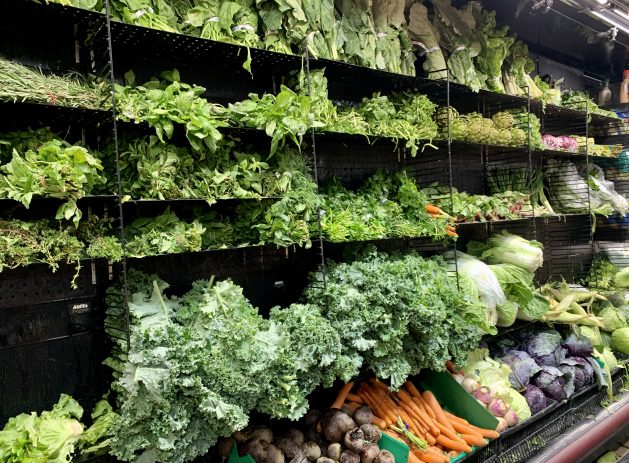UN Banks on Water as the Game Changer in Food Production and Consumption

UNITED NATIONS, Apr 29 (IPS) - As the United Nations prepares for its solutions-based Global Food Systems Summit in September, officials say resolving issues around water scarcity, pollution and wastage is crucial transforming food production and consumption.
The third Global Food Systems Dialogue was held virtually on Tuesday Apr. 27 with the event’s special envoy Dr. Agnes Kalibata calling on participants to contribute "game-changing ideas" to better manage the world’s water resources.
“Water is everything. Water touches all 17 SDG’s and so it is critical to everything that we do,” she said.
Noting that water systems are under stress from exploitation, pollution and drought, said it was time for action.
“Water is life, but it is one of those sources of life around biodiversity, irrigation or whether it is the water we get from above through rain-fed agriculture, it is one of the elements of food systems that is most taken for granted. It is not appreciated for what it is worth.”
Dialogue participants discussed the links between food and water systems and explored action to tackle the water challenges that threaten food systems, protect waterways, conserve the resource and ensure water equity.
Stating that "when water is wasted, food is wasted and when water is scarce, food is scarce", chair of the UN Water Partnership Gilbert Houngbo reminded the gathering that demand for food is rising – along with the world population.
“We know that in 2019, 690 million people went to bed hungry every night and very likely this year, the social report that is about to be released by the five agencies under the leadership of FAO, will certainly be confirming those difficult situations,” Houngbo said.
“In the past two decades, the annual amounts of available freshwater resources per person have fallen by roughly 20 percent and an estimated 3.2 billion people live in an agricultural area where water is scarce.”
In a March to July 2021 report, the Food and Agriculture Organisation of the UN and the World Food Programme warned that acute hunger would soar in over 20 countries, in the absence of urgent and scaled-up assistance.
The report on early warnings on acute food security stated that already, over 34 million people are struggling with ‘emergency levels’ of acute hunger across the world. This meant that they were one step away from starvation.
The Global Food Systems Summit is hoping to attract the commitment, technology and financing needed to feed all people sustainably. Through its focus on water as the game-changer in this goal, the Global Food Systems Dialogue acknowledges that managing scarce water resources will be critical to tackling hunger and achieving Sustainable Development Goals.
“The kinds of food that we grow, store and eat, have a direct impact on water. The way in which water is used in agriculture is no longer sustainable. We know that irrigation accounts for more than 70% of global water withdrawals. Existing techniques such as rainwater harvesting or micro-irrigation can make a major difference, while new research in digital technology holds out an even greater promise for more sustainable water use in agriculture,” the UN-Water chair said.
The dialogue builds on existing global water-related goals, including those outlined in the UN Decade on Water and Sustainable Development (2018-2028). That initiative calls for urgent action to increase access to safe water and ease pressure on water resources and ecosystems.
The decade’s halfway mark will be observed in 2023 and officials are already planning for the event, as another opportunity to take stock of the world’s progress in achieving ambitious goals for water security.
“COVID-19 has again put into sharp focus, the indivisible nature of the sustainable development agenda and food and water security is at the very heart of this agenda. Water is essential when it comes to feeding our populations, with freshwater resources under increasing pressure, so are food systems,” said Yoka Brandt, Permanent Representative of the Netherlands to the UN. The Netherlands is one of the host countries of the 2023 mid-term review of the Decade on Water and Sustainable Development.
The organisers of the dialogue say by bringing together the Global Food Systems Summit and the institutions taking responsibility for water, there is greater hope for joint solutions for change in the food and water sectors – two areas experiencing turmoil and intrinsically linked.
With intensifying competition for water and climate change hurting the water sector, creating tension and inequality among the world’s most vulnerable, including the rural poor, they say without water, there will be no food and ahead of the Global Food Systems Summit in September, this dialogue on water was an urgent one.
© Inter Press Service (2021) — All Rights Reserved. Original source: Inter Press Service

